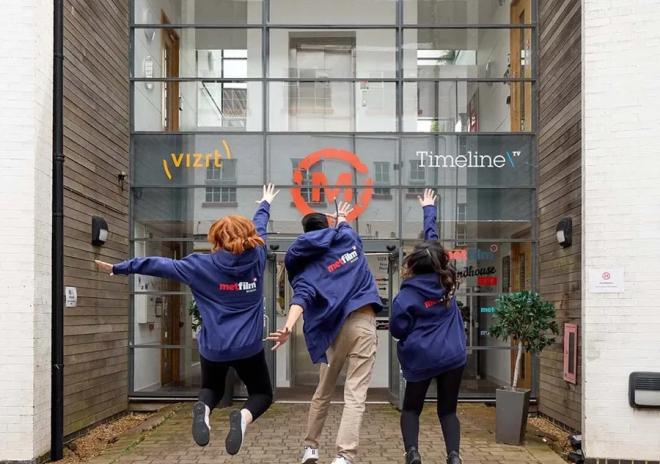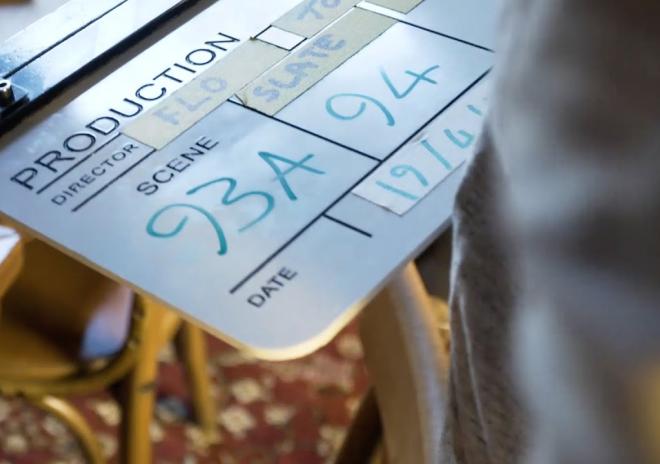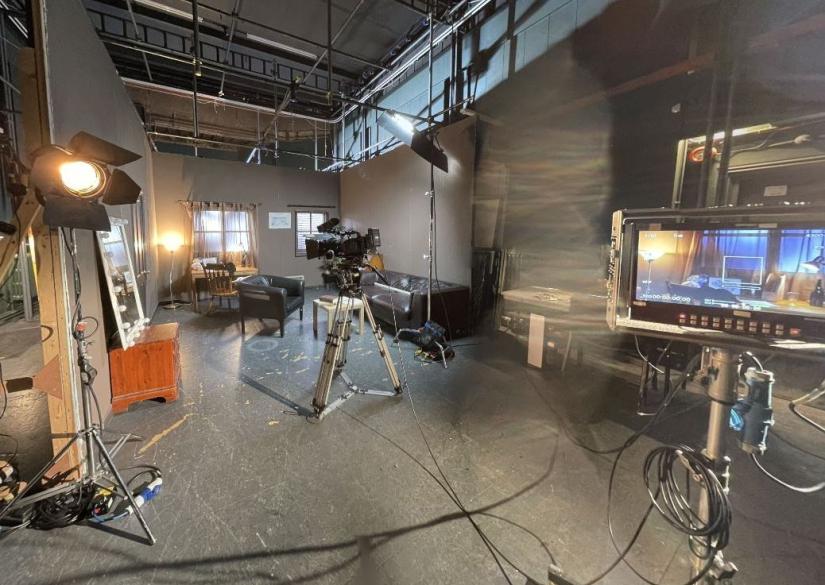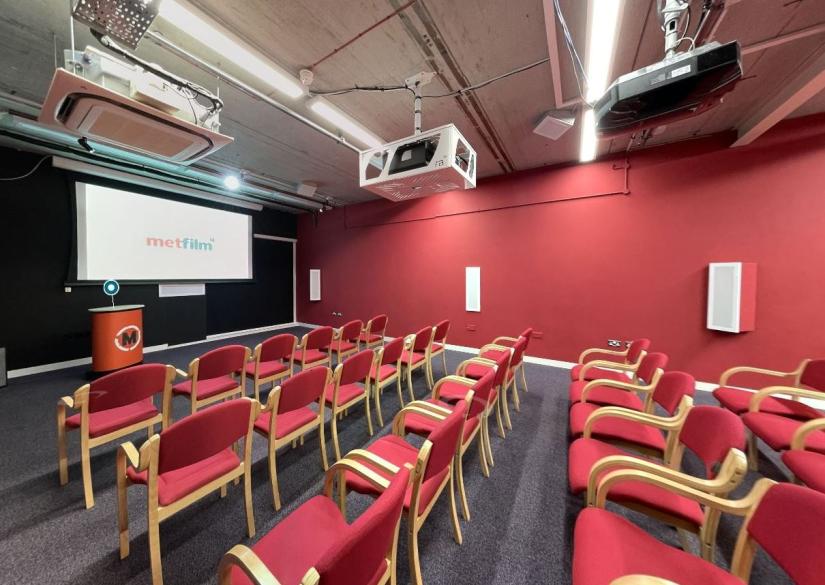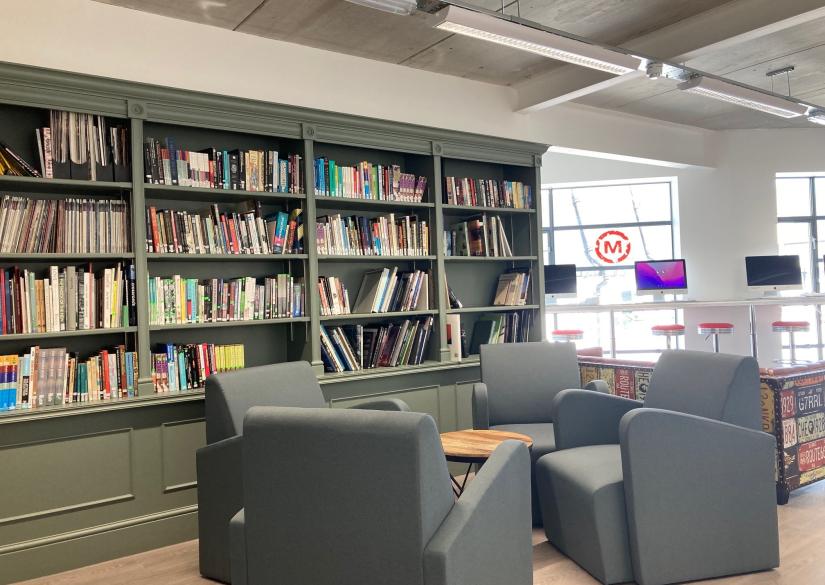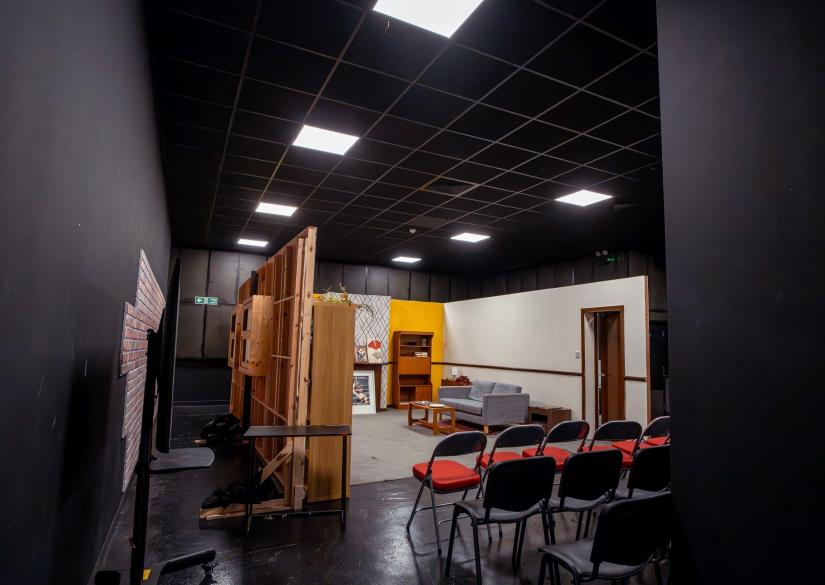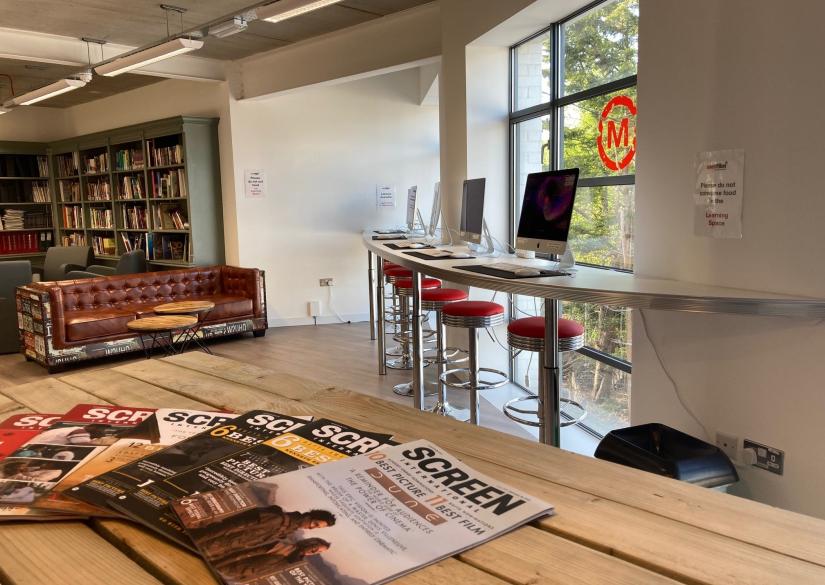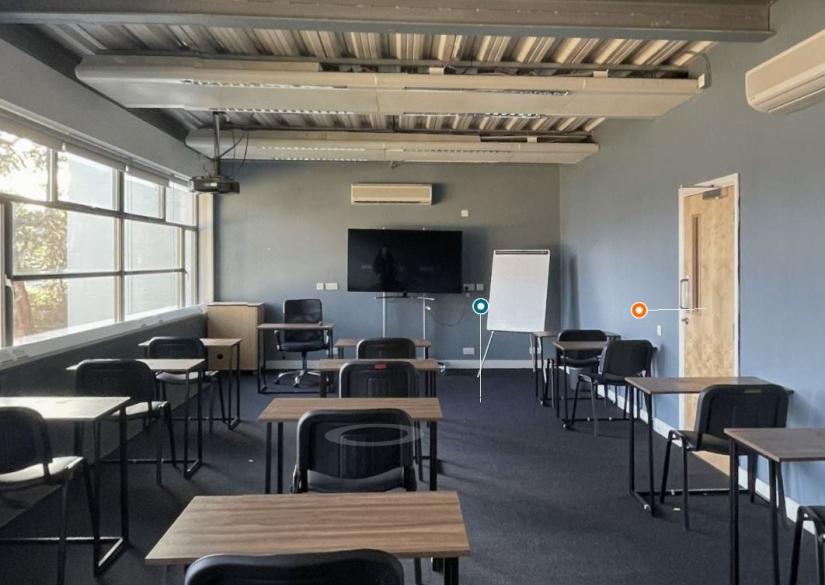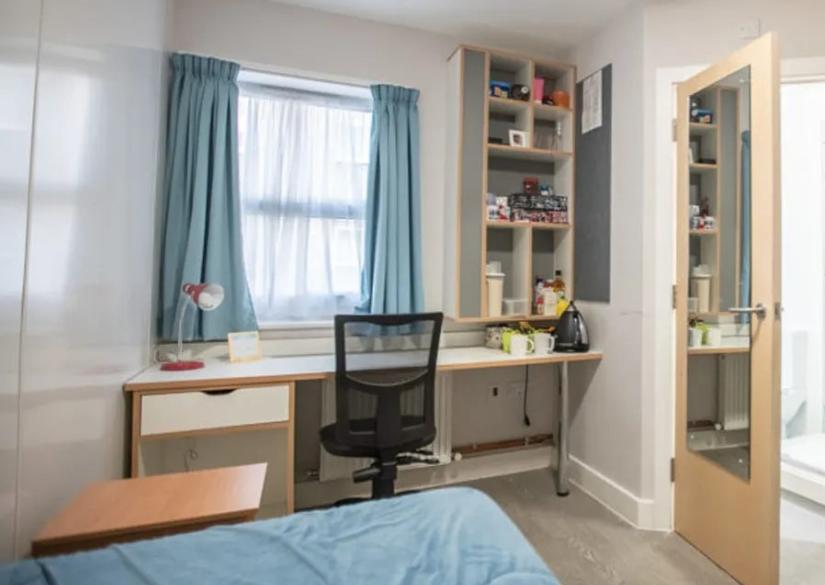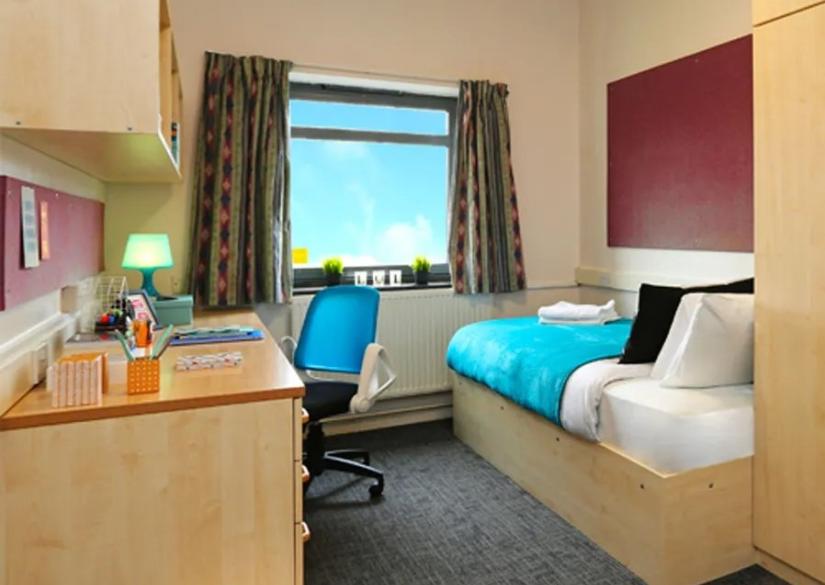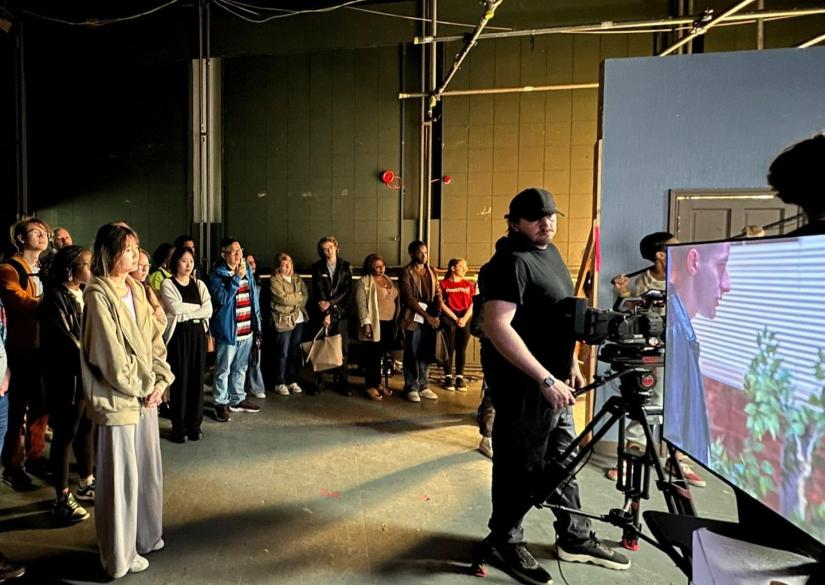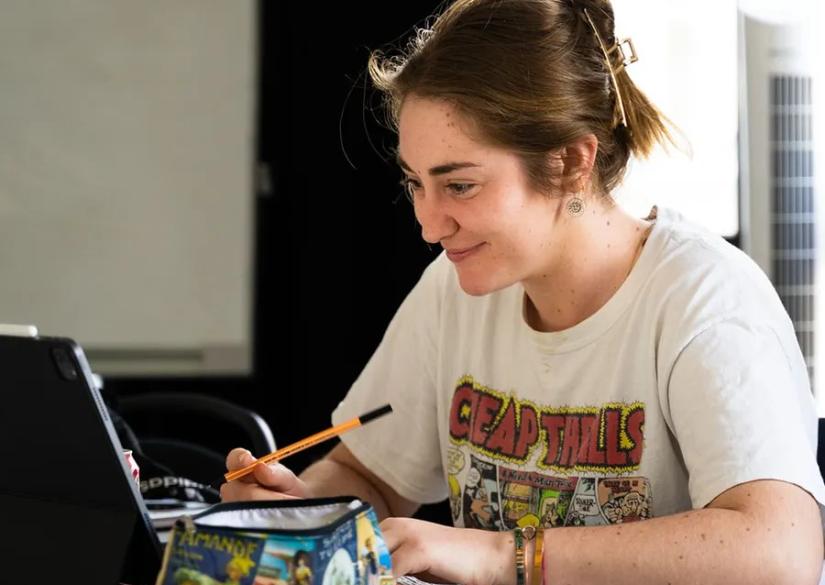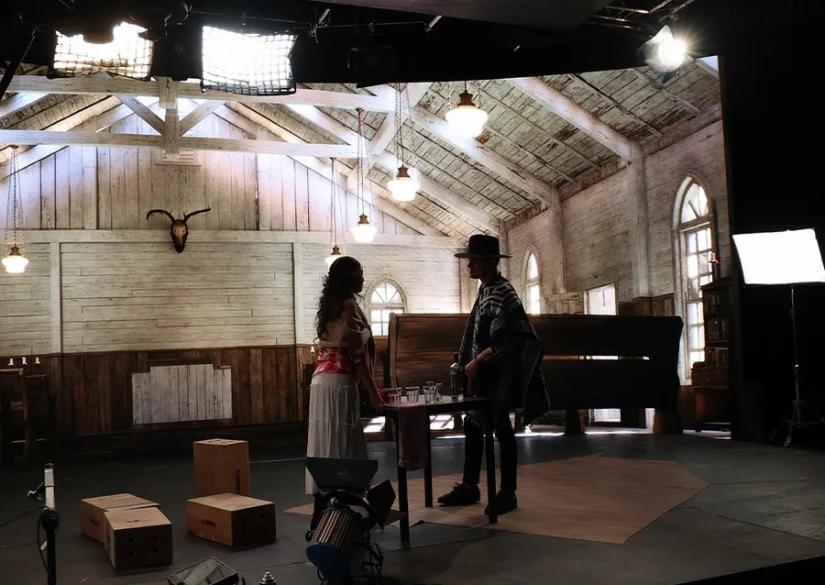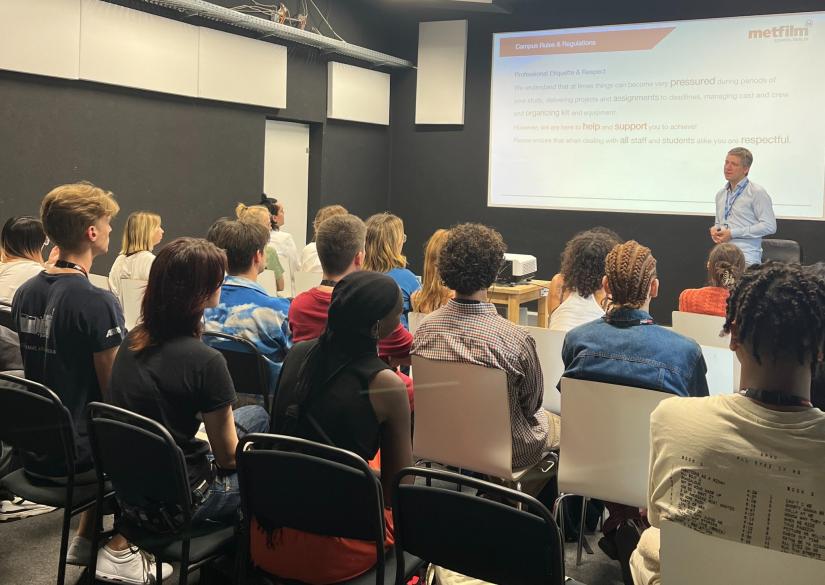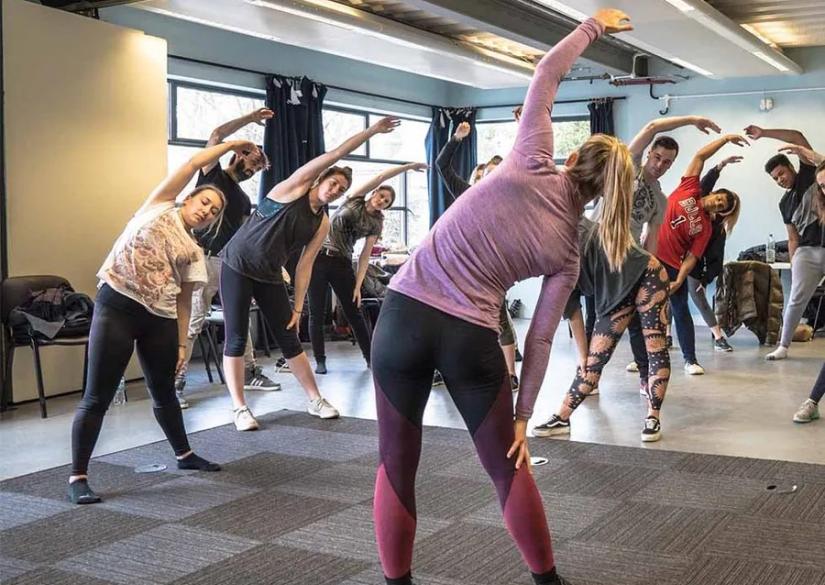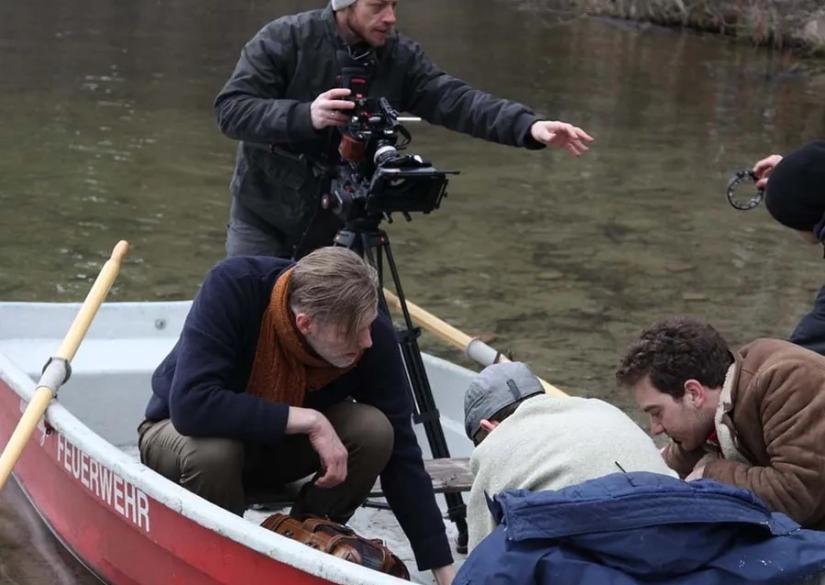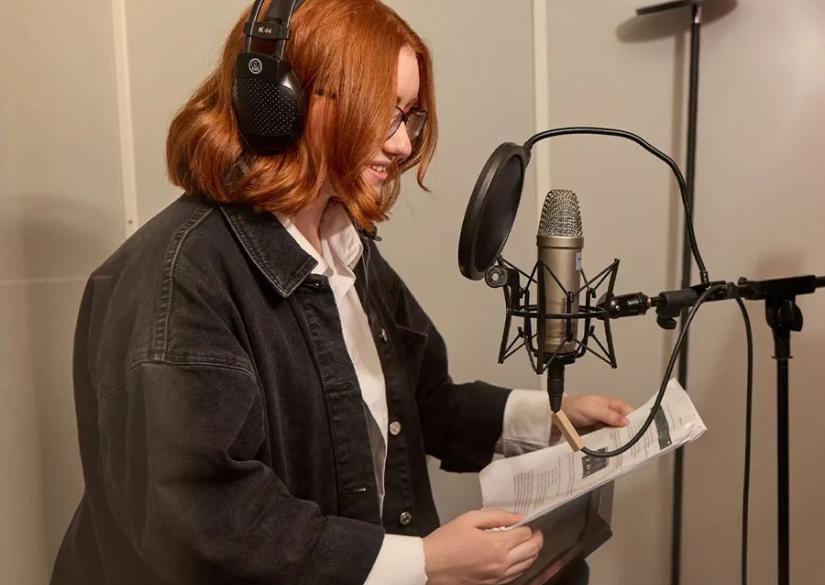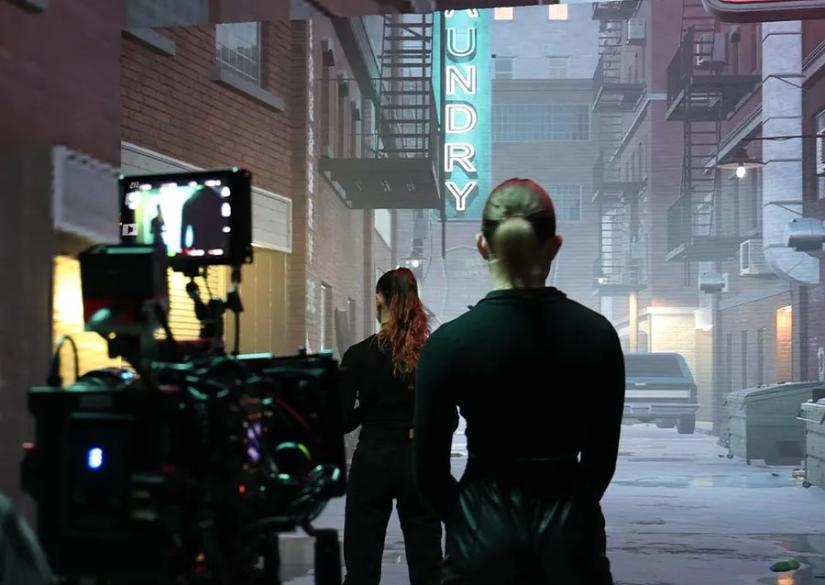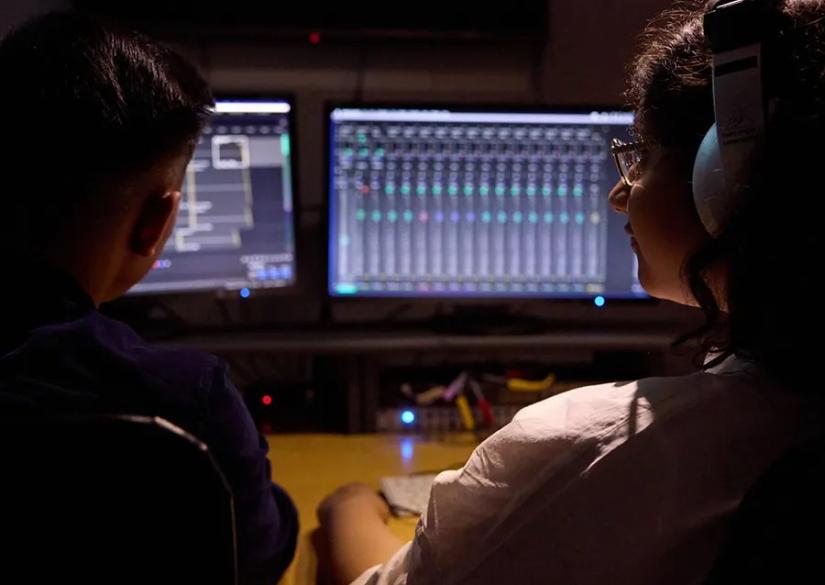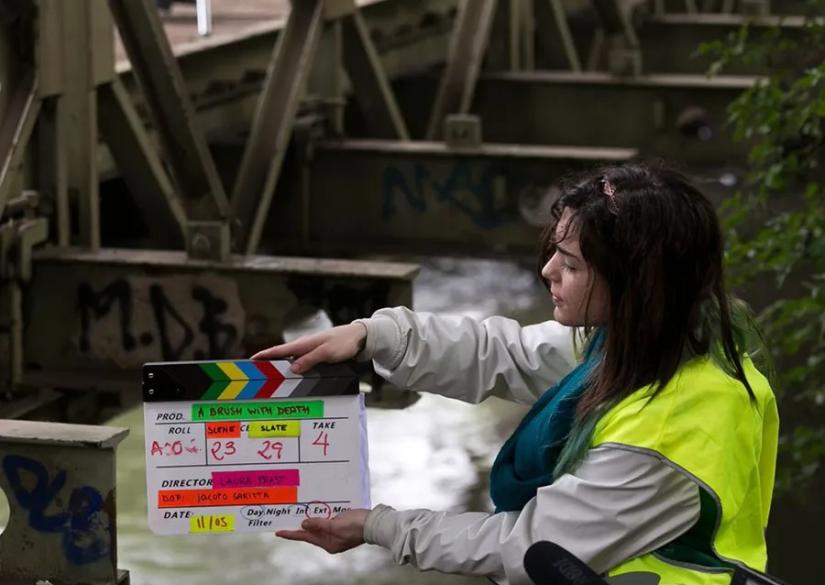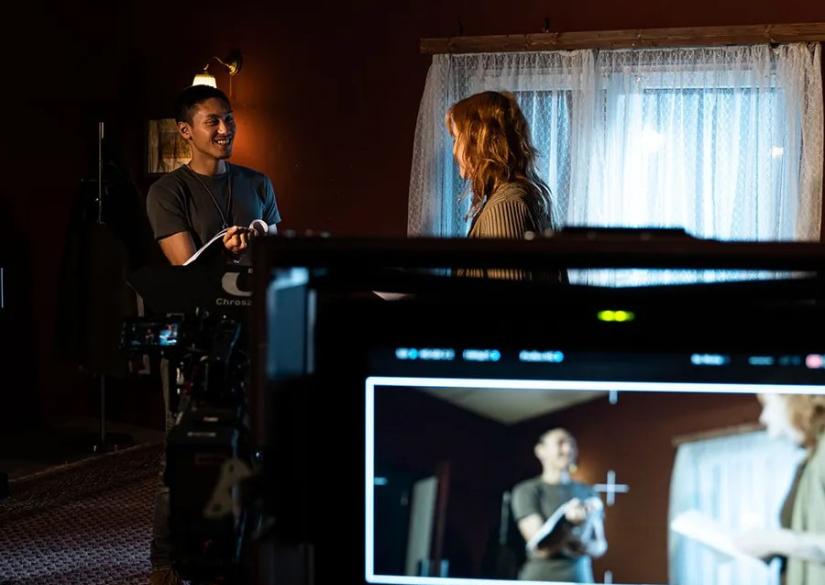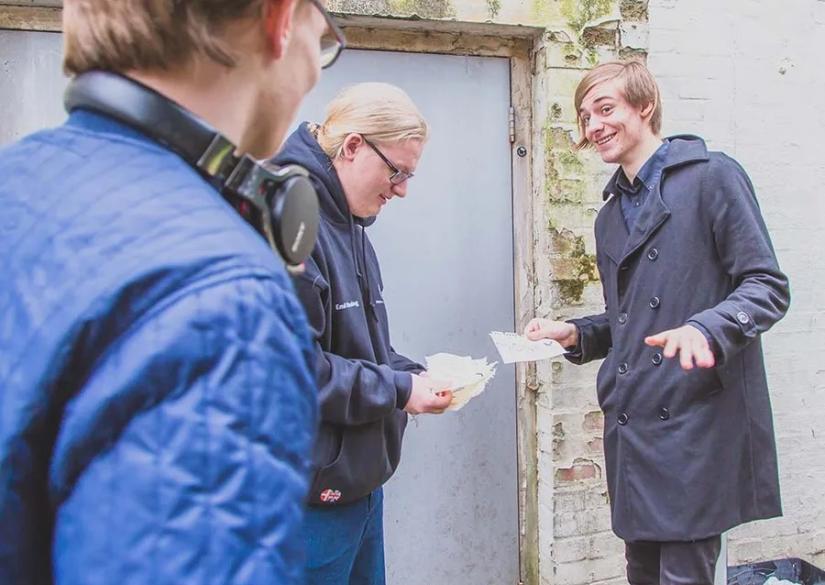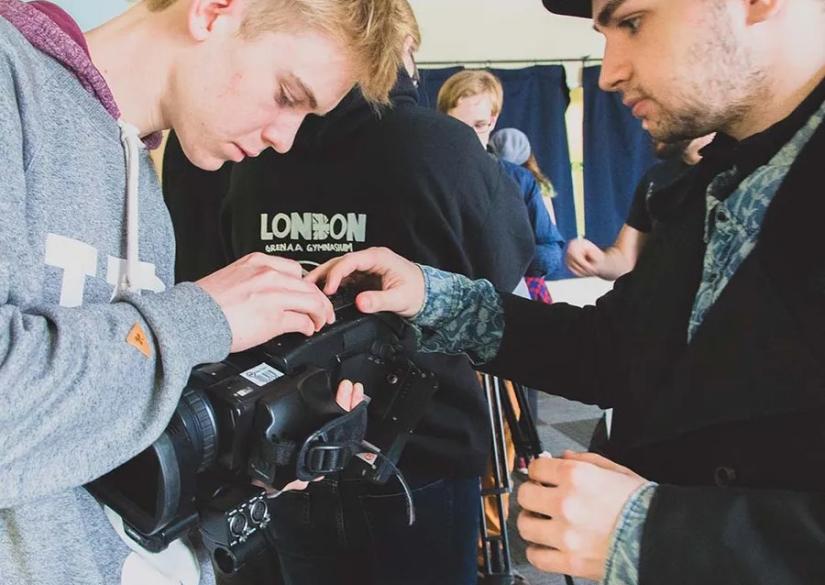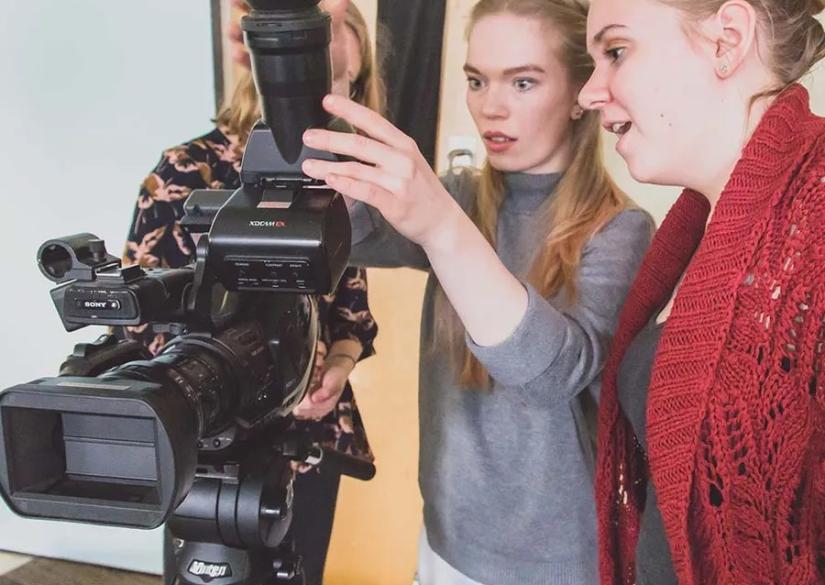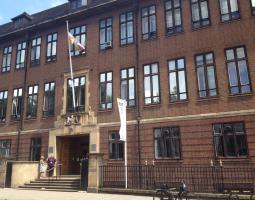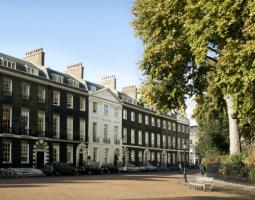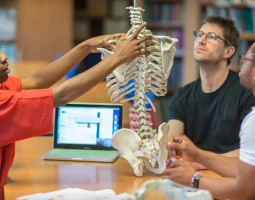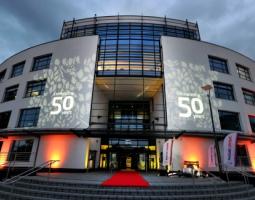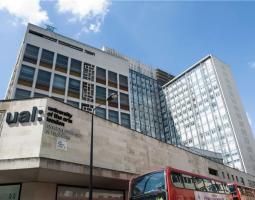Met Film School London
Programs and prices, tuition fees in Met Film School London
Short Courses
- Age of students – 18+;
- Duration of studying — from 1 day;
- The language of instruction is English.
Most short-term programs are available for registration without any formal requirements, but in some cases, additional documents and verifiable experience in the relevant profile may still be required.
Applying to such a course is as simple as possible: you need to choose a course and form an application.
The London campus of the Met Film School offers:
- 20-week courses leading to a certificate in film acting;
- 20-week courses with a certificate in the field of practical filmmaking;
- 20-week courses with a certificate in the field of feature film production;
- 8-week courses in Documentary Film Production;
- 8-week course "From History to Screen in 8 Weeks";
- Four-week Film Acting Level 1 and Level 2 programs;
- Four-week course "Cinematography";
- Four-week course "Creative Editing";
- Four-week course "Post-production";
- Four-week course "Art Editing";
- Weekend Course "Introduction to Filmmaking"
- One-day and three-day "virtual production" workshops;
All these courses provide students with business, artistic, expressive and technical tools in such areas as the work of director and cameraman, storytelling, cinematography, producer's work, post-production and other issues. Some courses are aimed at beginners, while others are designed for students with some work experience or a basic level of education (your manager will check the details for you).
Bachelor (Hons)
- Age of students– 17+;
- Duration of studying– 2 years;
- The language of instruction is English.
The goal of the bachelor's courses is to form and inspire a new generation of actors, directors, screenwriters, production and post-production specialists, managers and content developers, to provide them with the necessary skills, knowledge, teach abstract and critical thinking, professional skills, and also allow them to present their author's projects and a new vision to the target audience.
Today, the school offers a number of bachelor's degree programs with honors in relevant and in-demand areas in the labor market, including:
- "Content, Media and Film Production",
- "Digital Cinema Practice – Post-Production",
- "The Practice of Digital Cinema – Sound",
- "The Practice of Digital Cinema – Virtual Production",
- "The Practice of Digital Cinema – Visual Effects",
- "Cinema and Screen Business",
- "Practical Film Production" (3 years),
- "Practical Film Production (two-year program),
- "Screen acting".
All programmes are offered through an established partnership with the University of West London.
Master
- Age – 21+;
- Duration – 1 year;
- The language of instruction is English.
Master's courses in cinematography are a unique chance to develop the skills necessary and in demand in the professional field as a director and cameraman, screenwriter, sound engineer, post-production specialist, to study a number of film formats and their corresponding processes. All this is especially important against the backdrop of changes taking place in the industry, active transformation, the introduction of progressive practices, and globalization trends.
Within the framework of the programs, students will find themselves in an environment of like-minded people, young professionals who will have to determine the future of modern cinema. In addition to acquiring practical skills, they will have to form their own author's profile, acquire valuable additional competencies, such as editing, working with sound, virtual reality and other promising tools.
The school offers one-year master's programs in the following areas:
- cinematography;
- direction;
- film and television production;
- post-production;
- Producing;
- screen acting;
- script and storytelling.
Description of Met Film School London
- Founded: 2003
- Location: Clapham, London, United Kingdom
- Age of students: 16+
- Number of students: 500+
- Language of instruction: English.
An independent film school founded in 2003 by Thomas Hogue and Luke Montague in London as courses at the Picturehouse cinema. The first program, "A Story on the Screen in Eight Weeks", received an unequivocally positive reviews and was in great demand, which predetermined the overall success and found the vector of further development.
Three years later, the school moved to London's Earling Studios, launching the first, as yet unaccredited, one-year courses; at the same time, MetFilm Pist was opened, offering a full range of services for the post-production of feature films. A year later, a production company was opened at the school, and in 2007 the first admission to the undergraduate program approved by the University of West London took place (by 2020 there will be more than a dozen such programs). In 2012, the Berlin campus was opened, and the works of the graduates regularly demonstrate in European film festivals.
In 2016, MetFilm, in collaboration with Twitter and The Imaginarium, founded its own Smart Screen Creative Awards. In 2018, in partnership with the University of West London, ScreenSpace launched practical industry-specific undergraduate programs, and in 2021, the school opens two new campuses in Leeds and a second London campus at Garden Studios.
Since its inception, Met Film School London has graduated more than 15,000 students from 110 countries, many of whom have gone on to successful careers in the creative industries both in the UK and around the world. More than 56% of students are foreigners, 30% came from countries outside Europe. Students regularly and quite successfully present their films at film festivals.
Accommodation, meals, prices
The London campus of the Met Film is located on the grounds of Ealing Studios, opened in 1902, making it the oldest continuously operating film studio in the world. This studio has dozens of classic masterpieces of world cinema and popular TV series such as Downton Abbey. Five stages and the world's most famous studios, such as MadDog Casting, Timeline and The Imaginarium Studios, will be the arena for your learning.
It is worth mentioning that MetFilm does not offer its own housing - it is assumed that students will be able to independently choose the best place to live based on available resources and needs. Near the campus, you can pay attention to such options as:
- Modern all-inclusive student residence Central Studios Ealing;
- A dozen and a half options from Britannia Student Services, including residences, host families and coliving;
- ISH (International Students' House) is a promising and lively student social center offering affordable and comfortable accommodation conditions.
In addition, you can find housing on your own (it should be remembered that the rental price, as a rule, does not include utilities).
Advantages
- Academic excellence and close links to production
Production is considered a crucial element of the educational process at MetFilm. The correct placement of accents and proactive policy of the school help talented and motivated students to succeed in cinema, prepare them for the realities of the film industry and succeed, both on the small and big screen.
- Film Industry Center
Dozens of films that have won the Oscar and other high awards have been filmed and continue to be shot in London. Every year, fifty large and countless small independent film festivals are held in the British capital, including the brightest arthouse film venue with the participation of the Kubrick Film Museum and Archives.
- Job opportunities
More than 300,000 people are employed in the production of films and television films in the UK, tens of thousands of new vacancies open every year, and 9 out of 10 of them are associated with London film studios or are located in the immediate vicinity of the suburbs of London.
- Superior transport system
London is a modern city with an efficient, rational and convenient urban public transport system, allowing you to quickly and inexpensively get to any place in the city and its surroundings. On average, students spend no more than an hour each day on the way to study and back.
- Variety
Being a student in London also provides a number of non-obvious advantages, one of which is the diversity of the environment: several hundred languages are spoken in the British capital, representatives of a wide variety of ethnic, cultural and religious communities live and interact side by side.
Facilities and equipment at Met Film School London
Students have access to a wide range of state-of-the-art cameras and filming equipment, lighting fixtures of various types (for example, the fifth stage of the London campus is equipped with the Sumospace projector system, which is considered one of the best solutions for the world of film and television industry available on the market), modern sound systems. Post-production equipment includes high-performance workstations, large-diagonal monitors with accurate color reproduction, complemented by state-of-the-art video and audio software that meets the highest industry standards.
The study space on the Ealing Studios campus deserves special mention - here students can gather for joint work, receive the necessary advice (including remotely, online), use the library and network resources. In addition, students of the school can use the Paul Hamlin Library on the central campus of the University of West London, access to the Perlego electronic library.
Enrolment process
Applications for undergraduate or postgraduate courses at the Met Film School in London can be submitted via UCAS or a special form.
After processing the documents, the admissions committee will contact the applicant and invite him for an interview: it can be held in person, during a personal visit to the educational institution, or remotely via video link.
When considering applications received from applicants over 21 years old, the priority is not academic qualifications, but personal merit, skills and experience, past academic experience will be taken into account when reviewing such an application and making a final decision.
Perspectives
Employability is one of MetFilm's priorities, with all students and alumni receiving support from Met Film Futures' dedicated career and employment counselling unit. Specialists of this department conduct personal consultations for students on career planning every day, assist in finding a job, teach how to write a resume and give valuable practical advice. Seminars are held on a regular basis, where students are informed about their career prospects and opportunities in the profession.
An additional powerful tool, along with consultations, is navigation through the festival network and assistance in promotion on commercial platforms, master classes with invited guests and other relevant formats.
Entry requirements, how to apply, what is required to enrol
The requirements for applicants depend on the chosen program. As a rule, it is not necessary to have any specialized education to enroll in short-term courses, but students are expected to demonstrate a fairly high level of proficiency in written and spoken English.
To apply for undergraduate courses, students must be over 18 years old. A minimum overall IELTS score of 6.5 (minimum 6.5 in writing and 5.5 in reading, speaking and listening) or equivalent for other standardized tests (IELTS, TOEFL, Cambridge PET, ESOL Skills for Life Level 1 and 2, Trinity Level 1, minimum level is considered B2) is required. For undergraduate programs in Acting, Content, Media and Filmmaking, Digital Film Practice, Film and Film Business, the requirements are more loyal – IELTS 6.0, at least 5.5 in writing, listening, reading and speaking.
Expats from countries where English is the official language, as well as students who have obtained a qualification equivalent to a UK degree in one of them, are exempt from the need to confirm their knowledge of English (the same applies to Canadian citizens). Applicants who have already confirmed their level of English when submitting a previous application for any type of visa are exempt from the exam requirements.
International students should ensure that their national qualifications are recognised in the UK.
Scholarships Met Film School London
To facilitate access to higher education, the Met Film School London offers a range of scholarships – both means-based and merit-based.
- Means-based scholarships
Students who need it have the right to count on financial assistance. It is provided in the manner and on the terms stipulated by the rules of the school and the resolutions of the admissions committee.
- Merit Scholarships
Merit scholarships cover up to 20% of the cost of the first year of study, and for graduate programs, the entire course. They are awarded based on the financial capabilities of the school and the needs of students, based on the quality of the applications submitted. In their application, the student must demonstrate outstanding creative experience, as well as justify why the school should decide to support their studies with a scholarship.
- Full Scholarships
This type of scholarship covers 30% of the cost of the first year of study (or the entire course for graduate students).
Applications for scholarships should be submitted along with the main package of documents - before the decision on admission is made, the applicant's consent is obtained and the place is confirmed, and not after. Applications submitted in violation of the deadlines and the prescribed procedure will not be considered.
Institution on the map
Residence permits, citizenship and other services
- Guardianship services during the studies
- Student supervision
Review about Met Film School London
Recommendations on when to apply
| Language courses, schools and children's language camps | Primary and secondary education - private schools | Preparation programmes for entering universities - higher education | Higher education (after completing accredited programs A-level, IB, High School) - Bachelor, Master, MBA |
| - we recommend to apply 6-9 months before the start of the course (some camps and schools offer discounts for early booking or for lengthy study programs) - there are some very popular and high demand children's camps, where the applications need to be submitted 1 year in advance (in particular Switzerland , Great Britain , USA , Canada , Austria) | - we recommend to apply one year before the start of the training program, - some schools have a specific time frame (September-November - please specify an individual school) - some schools require tests in several stages (UKISET, internal tests of the school: English, mathematics, logics, subjects, interview, some require a personal visit) | - we recommend to apply one year before the start of the program, - for Foundation and Pathway programs, IELTS and TOEFL certificates are usually required, respectively | - recommended submission one year before the start of the program, - the deadline normally closes in January, for TOP HEIs and, as a rule, in March in other universities - for a bachelor, a Foundation or Pathway preparatory program a completed A-level, IB, High School + IELTS / TOEFL are required - for Masters you need a graduated higher education, in some cases you need a pre-Masters program - MBA requires completed higher education, work experience preferably at least 2-3 years, etc. |


